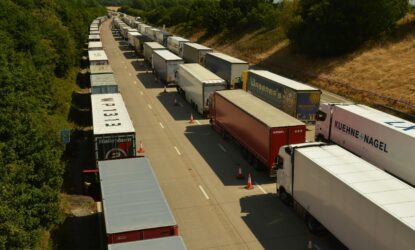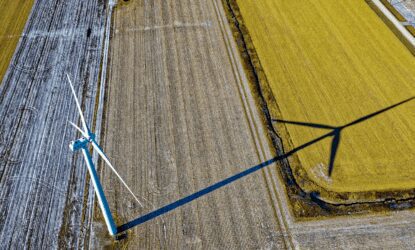 CDP 2026: Key changes and strategic insights
CDP 2026: Key changes and strategic insights
What’s the scope of your EcoVadis assessment?
If you’re a large organisation considering an EcoVadis assessment, it’s important to choose the right ‘scope’ – i.e. whether to be assessed at the ‘entity’ or ‘group’ level. But, with a wide range of factors to consider, selecting the most appropriate scope can be complex. We’ve put together a quick guide to the different EcoVadis assessment scopes to help you understand which approach might best suit your organisation.
Entity or group? Get to know the EcoVadis assessment scopes
To optimise your EcoVadis score, it’s important to know the advantages and disadvantages of the different EcoVadis assessment scopes. For this article, we’ll focus on group- and entity-level assessments, but site-level assessments are also available.
Group
According to EcoVadis, a group is defined as a company (a legal entity) with one or more subsidiaries (also legal entities) under an ultimate parent company. All domestic and foreign subsidiaries are included in the scope of the group assessment.
Joint ventures (JVs) are also included in the scope of group-level assessments, but only where the parent company owns at least 50% of the JV. The head office of the parent company is always included in the scope of the group assessment.
Entity
To be eligible for an entity-level assessment, a company (legal entity) must have no other subsidiaries below it. It can either be a standalone company or a subsidiary of a parent company.
Site
The EcoVadis assessment can also be conducted at the site level, referring to a specific site or facility belonging to a legal entity. As sites can be assessed individually, it doesn’t matter whether a site belongs to a standalone company or to a group.
Which company scopes cannot be evaluated by EcoVadis?
Some types of assessment scopes are not accepted by EcoVadis. These include:
- divisions or business units of an existing company that don’t have a separate legal entity name,
- holding companies (without coverage of any subsidiaries),
- NGOs, non-profits or state-owned organisations,
- commercial brands or product names.
Selecting your EcoVadis assessment scope
For organisations with multiple entities (especially those with a wide geographical spread), the choice of whether to report at the group or entity level can have a significant impact on the final EcoVadis score. So, how do you decide?
Key factors to consider include:
- the expectations of your stakeholders,
- your organisation’s sustainability maturity,
- the time and resources you have available,
- the diversification of your group’s activities.
Why complete the EcoVadis assessment at the entity level?
One of the most important factors that should inform your choice of assessment scope is the relationship between your company and your trading partners (and other stakeholders). By selecting a scope that best reflects this relationship, your partners will receive the sustainability management information that’s most relevant to them.
Let’s say that one of your customers has asked you to complete an EcoVadis assessment and that customer only buys their products from a specific subsidiary of your company. They don’t deal with any other entities, so it would make sense to complete the EcoVadis assessment at the individual entity level to meet their request.
This focused approach can help you to use resources more efficiently. It also allows for greater precision, both in terms of reporting on each entity’s sustainability maturity and identifying areas for improvement. However, if multiple customers have requested an assessment – and they deal with a variety of different entities within your wider organisation – a group-level EcoVadis assessment may be the most appropriate option.
Can conglomerates complete an EcoVadis assessment?
Conglomerates (companies that own many businesses with diversified activities) aren’t allowed to complete the EcoVadis assessment at the group level. However, their subsidiaries can be assessed at the entity level. This ensures that the specificities of each entity are taken into account – meaning that their different sustainability challenges and achievements are better reflected in the EcoVadis score.
Similarly, a parent company’s subsidiaries may have more diversified activities, even if it isn’t a conglomerate – think of a fashion label with manufacturing and design subsidiaries in different locations. In these cases, completing the assessment at the entity level may deliver more representative results. Choosing the best option, therefore, requires in-depth knowledge of your organisation and your customers.
Summary
Parent companies with a range of different activities are often better served by an EcoVadis assessment at the entity level. This will allow them to make more precise disclosures and gain a more accurate picture of their operational impacts. An entity-level assessment may also be more suitable for responding to individual customer requests.
Why get assessed at the group level?
For large companies whose activities are similar across the group (e.g. a tyre manufacturer with plants in several countries), it’s often more beneficial to perform the EcoVadis assessment at the group level. The main advantages of this are reduced costs, streamlined communication and greater strategic alignment.
Reduced costs
EcoVadis assessments at the group level can be less expensive than those conducted at the entity level because you’re performing one assessment instead of several. However, completing a single assessment to cover the entire organisation requires significant cross-functional and cross-regional collaboration. To achieve this, it’s helpful to have a central body to coordinate your efforts, such as a global sustainability team.
On the other hand, if key sustainability expertise or resources are currently more dispersed throughout the group, it may be more cost-effective to be assessed at the entity level. It all depends on the sustainability maturity of your organisation and the existing data collection and reporting frameworks you have in place.
Streamlined communication
Another advantage of completing the EcoVadis assessment at the group level is that it provides a single rating that you can share with all key stakeholders. This can also help to demonstrate a global commitment to improving sustainability management across your organisation. And as more and more companies integrate ESG data into their procurement processes,1 this can be critical to your business’s growth strategy.
Greater strategic alignment
Conducting an EcoVadis assessment can be a catalyst for progress on your sustainability strategy – highlighting areas for development and enabling you to implement targeted improvement initiatives. However, if you only conduct assessments at the individual entity level, you may miss out on broader insights that can lead to global improvements across the organisation. Therefore, in the long term, the more holistic view provided by a group-level assessment can help you build a more future-proof business.
What are the challenges of a group-level assessment?
A group-level assessment may result in a lower overall EcoVadis score. This is likely to be the case if progress on sustainability management is uneven across the different entities in your organisation. A lower-performing entity may, therefore, ‘dilute’ your company’s overall score, which can be detrimental to customer relationships.
You should also consider the documentation you have available for all entities, especially regarding quantitative reporting and KPIs. Failure to provide adequate data for certain entities may result in a lower overall score, and this is especially challenging for wider assessment scopes as data collection needs to be ensured across different entities and teams. For example, EcoVadis asks for tons of waste recovered – some entities might be good at tracking it, and others not. In group assessments, this poses a higher risk. If you conduct a group-level assessment, it’s likely that your overall score will be lower than if you’d been assessed at the entity level.
Summary
A group-level EcoVadis assessment provides a comprehensive view of your organisation’s sustainability management. This means it’s best suited for companies with similar activities and a consistent level of sustainability maturity across all entities.
A strategic approach to your EcoVadis assessment
Trusted by more than 130,000 organisations worldwide,2 the EcoVadis rating system is a proven framework for increasing transparency and improving collaboration with key stakeholders. Deciding whether to report at a group or entity level can, therefore, be essential when developing a successful assessment strategy.
But, as with any step on your sustainability journey, it’s vital to balance the needs of the business with the demands of regulators, customers and the planet. So, if you’re considering an EcoVadis assessment, make sure you choose the scope that best reflects your current level of sustainability maturity and brings you closer to your strategic goals.
Want to learn about getting support with your EcoVadis assessment? Visit our EcoVadis assessment service page for more information.











